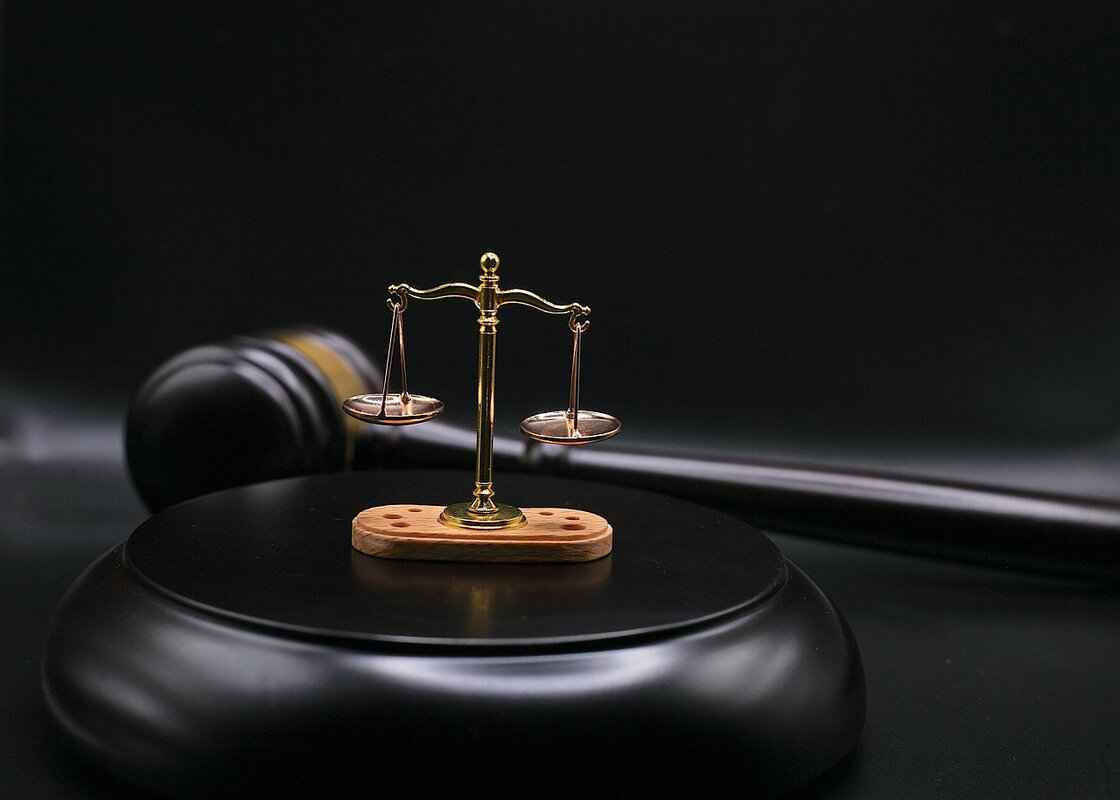This article delves into the importance of hiring a lawyer when contemplating a lawsuit. The legal landscape can be intricate and daunting, making professional representation invaluable in navigating the complexities of legal processes.
Understanding the Basics of Lawsuits
Before determining if legal representation is necessary, it is crucial to understand what a lawsuit involves. A lawsuit is a legal dispute between two or more parties that is resolved by a court. There are various types of lawsuits, including civil, criminal, and administrative cases, each governed by its own set of rules and procedures.
When to Consider Hiring a Lawyer
There are specific scenarios where the expertise of a lawyer becomes essential:
- Complex Legal Issues: If your case involves intricate laws or regulations, a lawyer’s professional interpretation is vital to navigate effectively.
- Significant Financial Stakes: Cases involving substantial monetary damages necessitate a lawyer’s skills to maximize compensation and protect your financial interests.
- Emotional Distress: Legal matters can be emotionally taxing, and having a lawyer can provide much-needed support and guidance.
Complex Legal Issues
Legal cases often involve complex regulations that require thorough understanding and compliance. A lawyer ensures that all legal requirements are met, preventing potential dismissals or penalties. Furthermore, legal documents are often filled with jargon that can be confusing. A lawyer can clarify these terms, ensuring you understand your rights and obligations fully.
Financial Stakes
When significant financial stakes are involved, a lawyer can help you understand the potential outcomes and strategize effectively. They can negotiate on your behalf, ensuring that you receive fair compensation for any damages incurred.
Self-Representation: Pros and Cons
While representing yourself, known as pro se representation, can save on legal fees, it comes with its own set of challenges:
- Advantages: Cost savings and full control over your case.
- Disadvantages: Lack of legal training can lead to mistakes that jeopardize your case.
Types of Cases That May Require a Lawyer
Certain cases are more likely to benefit from professional legal representation, including:
- Personal Injury Cases: A lawyer can help establish liability and negotiate settlements, ensuring fair compensation.
- Family Law Matters: Issues like divorce or child custody often involve emotional complexities where legal guidance is crucial.
- Business Disputes: Navigating contracts and business law can be intricate, making legal expertise essential.
Cost Considerations of Hiring a Lawyer
Understanding the financial implications of hiring a lawyer is critical:
- Hourly Rates vs. Contingency Fees: Lawyers may charge by the hour or work on a contingency basis, which can influence your choice.
- Potential Hidden Costs: Be aware of additional expenses, such as court fees and expert witness fees, that may arise during the lawsuit process.
Finding the Right Lawyer for Your Case
Choosing the right lawyer is vital for your lawsuit’s success. Consider the following:
- Research Qualifications and Experience: Look for lawyers with expertise in your specific case type.
- Consultation and Initial Meetings: Many lawyers offer free consultations; use this opportunity to assess their understanding of your case.
In summary, while it is possible to file a lawsuit without a lawyer, the complexities and potential pitfalls of the legal system make hiring a professional a wise decision. From understanding legal jargon to navigating the intricacies of the court system, a lawyer can significantly enhance your chances of a favorable outcome.

Understanding the Basics of Lawsuits
When considering the possibility of filing a lawsuit, it is crucial to understand the fundamental aspects of what a lawsuit entails. A lawsuit is essentially a legal dispute between two or more parties that is resolved by a court. This process can be complex, involving various types of lawsuits and intricate legal procedures.
First, let’s explore the different types of lawsuits. Lawsuits can generally be categorized into civil and criminal cases. Civil lawsuits often involve disputes over rights, obligations, and liabilities between individuals or entities, such as in cases of personal injury, contract disputes, or property issues. On the other hand, criminal lawsuits involve the government prosecuting an individual for violating laws, which can result in penalties such as fines or imprisonment.
Furthermore, lawsuits can be classified into several specific types, including:
- Personal Injury Lawsuits: These involve claims for damages due to negligence or intentional harm.
- Family Law Cases: Issues such as divorce, child custody, and adoption fall under this category.
- Contract Disputes: These arise when one party fails to fulfill their obligations under a contract.
- Property Disputes: Conflicts over ownership, boundaries, or use of property.
Understanding the legal processes involved in a lawsuit is equally important. The process typically begins with the filing of a complaint, where the plaintiff outlines their grievances and the relief sought. This is followed by the defendant’s response, which can include counterclaims. Both parties then engage in discovery, where they exchange relevant information and evidence. This stage is critical as it sets the groundwork for the trial.
During the trial, each side presents their case, including witness testimonies and evidence, before a judge or jury. After deliberation, a verdict is reached, which can be appealed by the losing party. Throughout this process, various motions may be filed, and procedural rules must be adhered to, making legal representation beneficial.
In summary, grasping the basics of lawsuits, including their types and the legal processes involved, is essential before deciding whether to hire a lawyer. Understanding these elements can help individuals navigate the complexities of the legal system more effectively, ensuring that they are better prepared for the challenges ahead.

When to Consider Hiring a Lawyer
When navigating the legal landscape, understanding when to seek the assistance of a lawyer is crucial. The legal system can be intricate and overwhelming, especially for individuals who are unfamiliar with its workings. In this section, we will delve into specific circumstances that may warrant hiring a lawyer, emphasizing the importance of professional guidance in various legal matters.
Complex Legal Issues
Legal matters can often involve intricate laws and regulations that require thorough understanding and interpretation. For instance, cases involving contract disputes, intellectual property rights, or employment law may present complexities that are beyond the grasp of someone without legal training. A lawyer can provide invaluable assistance in navigating these complexities, ensuring that you do not inadvertently make mistakes that could jeopardize your case.
- Regulatory Compliance: Many industries are governed by specific regulations. A lawyer can help you understand these regulations and ensure compliance, which is essential to avoid potential legal repercussions.
- Interpreting Legal Language: Legal documents are often filled with jargon that can be confusing. A lawyer can break down these terms, ensuring you fully comprehend your rights and obligations.
Significant Financial Stakes
When a lawsuit involves substantial financial implications, having legal representation becomes even more critical. A skilled lawyer can help you assess the potential value of your claim, strategize effectively, and maximize your compensation. For example, in cases of personal injury or business disputes, the financial stakes can be high, making professional guidance essential to protect your interests.
Emotional Distress
Legal issues often come with a heavy emotional toll. Whether dealing with a divorce, custody battle, or a criminal charge, the stress and anxiety can cloud judgment. A lawyer not only provides legal advice but can also offer support and reassurance throughout the process, helping you make informed decisions without being overwhelmed by emotions.
Types of Cases That May Require a Lawyer
While any legal matter can benefit from professional representation, certain types of cases are particularly complex and often necessitate a lawyer’s expertise:
- Personal Injury Cases: In these cases, a lawyer can assist in establishing liability, negotiating settlements, and ensuring that you receive fair compensation for your injuries.
- Family Law Matters: Issues such as divorce, child custody, and adoption can be emotionally charged and legally complex, making the guidance of a lawyer essential.
- Business Disputes: For business owners, disputes can arise over contracts, partnerships, and employment issues. A lawyer can help navigate these challenges effectively.
Self-Representation: Weighing the Risks
Some individuals may consider representing themselves in a lawsuit to save on legal fees. However, it’s important to weigh the pros and cons. While self-representation can save money, it also comes with significant risks. Without legal training, you may struggle with procedural rules and legal strategies, which could jeopardize your case.
In conclusion, while it is possible to represent yourself in a lawsuit, the complexities of the legal system often necessitate the expertise of a lawyer. Whether you are facing complex legal issues, significant financial stakes, or emotional distress, a lawyer can provide the guidance and support needed to navigate the legal landscape effectively.
Complex Legal Issues
When navigating the legal landscape, individuals often encounter that can significantly impact the outcome of their cases. These intricacies may arise from a multitude of factors, including the nature of the laws involved, the specific regulations applicable to the situation, and the nuances of legal language. As such, seeking the expertise of a professional lawyer becomes not just advisable, but essential.
Legal systems are often laden with intricate laws that can be challenging for the average person to interpret. For instance, laws governing business practices, environmental regulations, or even personal rights can vary greatly by jurisdiction and require a thorough understanding to navigate effectively. Without proper legal interpretation, individuals risk making costly mistakes that could jeopardize their cases. An experienced attorney can provide clarity, ensuring that all legal requirements are understood and adhered to.
One of the primary reasons to hire a lawyer is to ensure regulatory compliance. Many cases involve specific regulations that must be followed to avoid penalties or the dismissal of a case. For example, in business litigation, failing to comply with industry regulations can lead to significant legal repercussions. A knowledgeable attorney will ensure that all necessary filings and compliance measures are taken, safeguarding against potential legal pitfalls.
Moreover, legal documents often contain complex jargon that can be confusing for those without a legal background. A lawyer can help demystify these terms, providing clients with a clear understanding of their rights and obligations. This understanding is crucial, as misinterpretation of legal documents can lead to unfavorable outcomes. By having a legal professional interpret these documents, individuals can make informed decisions regarding their cases.
In addition to understanding regulations and legal language, navigating the procedural aspects of a lawsuit can be daunting. Each jurisdiction has its own rules governing court procedures, deadlines, and filing requirements. An attorney can guide clients through these processes, ensuring that all necessary steps are taken in a timely manner. This expertise is invaluable, as missing a deadline or failing to follow proper procedures can result in the dismissal of a case.
Furthermore, the emotional toll of dealing with complex legal issues should not be underestimated. Many individuals find the legal process overwhelming, leading to stress and anxiety. A lawyer can provide not only legal guidance but also emotional support throughout the litigation process. Their experience allows them to anticipate challenges and develop strategies to address them, providing clients with peace of mind.
In summary, the complexities of legal issues demand professional interpretation and guidance. Engaging a qualified attorney ensures that individuals can navigate the legal system effectively, comply with all regulations, and understand their rights and obligations. The benefits of having legal representation extend beyond mere compliance; they encompass emotional support and strategic planning that can significantly influence the outcome of a case. For anyone facing the daunting task of filing a lawsuit, consulting with a lawyer is a crucial step towards achieving a favorable resolution.
Regulatory Compliance
When navigating the complexities of the legal system, stands out as a critical area where the expertise of a lawyer is indispensable. Many individuals and businesses find it increasingly challenging to understand and adhere to specific regulations, which can vary widely depending on the jurisdiction and the nature of the case. Engaging a lawyer can be a vital step in ensuring that all legal requirements are met, thereby avoiding potential dismissing of cases or incurring hefty penalties.
Regulatory compliance covers a broad spectrum of laws and regulations, including environmental laws, labor laws, financial regulations, and industry-specific rules. Each of these areas has its unique set of requirements that can be difficult to navigate without proper legal guidance. A lawyer with expertise in the relevant field can provide clarity on these regulations, helping clients to understand their rights and obligations.
- Understanding Legal Frameworks: Lawyers are trained to interpret complex legal frameworks, which often contain intricate details that can be easily overlooked. By hiring a lawyer, you gain access to their knowledge and skills, ensuring that you are fully informed about the laws that apply to your situation.
- Risk Mitigation: Non-compliance can lead to serious legal repercussions, including fines and litigation. A lawyer can help identify potential compliance risks and implement strategies to mitigate them, protecting you from future liabilities.
- Document Preparation: Regulatory compliance often involves extensive documentation. A lawyer can assist in preparing and reviewing necessary documents to ensure they meet legal standards, reducing the likelihood of errors that could lead to compliance issues.
- Representation in Regulatory Matters: In cases where regulatory bodies investigate or initiate proceedings against you, having a lawyer can significantly enhance your ability to navigate the process. They can represent you in hearings, negotiate settlements, and advocate on your behalf.
Moreover, the legal landscape is continuously evolving, with regulations frequently changing due to new laws or shifting political climates. A lawyer stays updated on these changes and can provide timely advice, ensuring that you remain compliant with current regulations. This proactive approach not only helps you avoid penalties but can also enhance your reputation and credibility in your industry.
For businesses, regulatory compliance is not just about avoiding penalties; it’s also about fostering trust with clients and stakeholders. Companies that demonstrate a commitment to compliance are often viewed more favorably, which can lead to increased customer loyalty and business opportunities. A lawyer can help create a culture of compliance within your organization, guiding you in establishing policies and training programs that emphasize the importance of adhering to regulations.
In conclusion, while navigating regulatory compliance may seem daunting, the support of a skilled lawyer can make a significant difference. They provide the expertise needed to understand complex legal requirements, mitigate risks, and ensure that you remain compliant. Whether you are an individual or a business, investing in legal representation can save you time, money, and stress in the long run.
Interpreting Legal Language
Legal documents are often laden with complex terminology and jargon that can be intimidating for those unfamiliar with the law. This complexity can lead to misunderstandings about your rights and obligations. When faced with such documents, hiring a lawyer becomes invaluable. An experienced attorney can act as a translator, breaking down the legalese into plain language that you can easily comprehend.
Understanding legal language is not just about knowing the definitions of terms; it is also about grasping the implications behind them. For instance, phrases like “burden of proof” or “statute of limitations” carry significant weight in legal proceedings. A lawyer can explain not only what these terms mean but also how they apply to your specific situation. This ensures that you are fully aware of your legal rights and responsibilities.
Moreover, the stakes involved in legal matters can be high. Misinterpreting a clause in a contract or misunderstanding your rights in a lawsuit can lead to severe consequences, including financial loss or unfavorable legal outcomes. A lawyer’s expertise can help mitigate these risks by providing clarity and ensuring that you make informed decisions throughout your case.
- Clarification of Terms: Lawyers can explain terms that may seem obscure, such as “tort,” “plaintiff,” or “defendant.” Understanding these terms is crucial for grasping the overall context of your case.
- Contextual Understanding: Legal language often relies on context. A lawyer can provide insights into how specific terms are applied in your case, giving you a more comprehensive understanding.
- Document Review: A lawyer can review legal documents to ensure that all terms are correctly understood and that your interests are adequately protected.
Additionally, legal documents often include provisions that may seem straightforward but can have nuanced meanings. For example, a “non-disclosure agreement” may appear simple, yet understanding the extent of what can and cannot be disclosed is crucial. A lawyer can help you navigate these intricacies, ensuring that you are not inadvertently agreeing to unfavorable terms.
Furthermore, legal language is constantly evolving, influenced by changes in laws and regulations. Staying updated on these changes can be challenging for individuals without legal training. A lawyer not only interprets current legal language but also keeps you informed about any new developments that may affect your case.
Finally, engaging a lawyer to interpret legal language can provide peace of mind. Knowing that a professional is guiding you through the complexities allows you to focus on other aspects of your life while ensuring your legal matters are handled appropriately. This can be particularly important in emotionally charged situations, such as family law cases or personal injury claims, where understanding your legal standing can significantly impact your well-being.
In summary, the ability to interpret legal language is essential in any legal proceeding. The complexities of legal jargon can be overwhelming, but with the assistance of a qualified attorney, you can gain clarity and confidence in understanding your rights and obligations. This understanding is not just beneficial; it is crucial for navigating the legal landscape effectively.
Financial Stakes
When facing a legal dispute that involves substantial monetary damages, the decision to hire a lawyer becomes crucial. The complexities of the legal system can be overwhelming, and having a knowledgeable professional by your side can significantly impact the outcome of your case. In this section, we will delve into the importance of legal representation, particularly when financial stakes are high.
Maximizing Compensation
One of the primary reasons to engage a lawyer in cases with significant financial implications is their ability to maximize your compensation. Experienced attorneys understand the nuances of law and know how to effectively argue your case. They can evaluate the full extent of your damages, including medical expenses, lost wages, and emotional distress, ensuring that all aspects are accounted for in your claim.
Strategic Negotiation
A skilled lawyer can employ strategic negotiation tactics that you may not be aware of. Insurance companies and opposing parties often aim to minimize payouts, using various tactics to undervalue claims. An attorney knows how to counter these strategies and advocate for a fair settlement that reflects the true value of your case.
Protecting Your Interests
Throughout the lawsuit, your financial interests must be safeguarded. A lawyer can help you navigate the legal landscape, ensuring that your rights are protected at every stage. They can assist in gathering evidence, filing necessary documents, and adhering to deadlines, which are critical for maintaining your case’s integrity.
Understanding Legal Complexities
The legal system is rife with complexities, including procedural rules and substantive law. Without proper legal training, self-representation can lead to costly mistakes that jeopardize your case. A lawyer’s expertise can help you avoid pitfalls that could undermine your financial recovery.
Emotional Support
Legal battles can be emotionally draining, particularly when significant financial stakes are involved. Having a lawyer not only provides legal support but also emotional reassurance. They can guide you through the process, alleviating some of the stress associated with litigation.
Types of Cases That Require a Lawyer
- Personal Injury Cases: In these cases, an attorney can help establish liability and negotiate settlements effectively.
- Business Disputes: When significant financial stakes are involved, legal representation is crucial for protecting your business interests.
- Family Law Matters: Cases involving divorce or custody battles can have profound financial implications, making legal guidance essential.
Cost Considerations
While hiring a lawyer incurs costs, it’s essential to view this as an investment in your future. Many attorneys work on a contingency fee basis, meaning they only get paid if you win your case. This arrangement can alleviate the financial burden of upfront legal fees, allowing you to focus on your recovery.
Finding the Right Attorney
Choosing the right lawyer for your case is paramount. Look for someone with experience in your specific type of case and a proven track record of achieving favorable outcomes. Utilize free consultations to assess their understanding of your situation and their approach to handling your case.
In summary, when significant monetary damages are at stake, hiring a lawyer is not just beneficial; it is often essential. Their expertise, negotiation skills, and ability to protect your interests can make a substantial difference in the outcome of your lawsuit. By securing competent legal representation, you position yourself to achieve the best possible result in your legal battle.

Self-Representation: Pros and Cons
When individuals find themselves in legal disputes, they often face the dilemma of whether to hire a lawyer or to represent themselves, a practice known as pro se representation. This decision can significantly impact the outcome of a case, making it essential to weigh the advantages and disadvantages carefully.
- Cost Savings: One of the most compelling reasons for self-representation is the potential to save on legal fees. Hiring a lawyer can be expensive, and for some, the financial burden can be a deciding factor.
- Control Over Your Case: Representing yourself allows you to maintain complete control over your legal strategy and decisions. This autonomy can be empowering, especially for those who feel confident in their understanding of the law.
- Personal Insight: As someone directly affected by the case, you may have unique insights and personal experiences that can be beneficial in presenting your argument effectively.
- Lack of Legal Knowledge: The legal system is complex, and without a solid understanding of legal principles, you may struggle to navigate through procedural rules and requirements. This knowledge gap can lead to mistakes that could jeopardize your case.
- Emotional Involvement: Being personally invested in the outcome can cloud judgment. An attorney can provide an objective perspective, helping to make rational decisions throughout the process.
- Time Constraints: Legal proceedings can be time-consuming, and self-representation may require a significant amount of your time to research and prepare. This can be particularly challenging if you are balancing other responsibilities.
There are specific scenarios where self-representation might be more feasible. For instance, in small claims court, where stakes are lower and the process is more straightforward, many individuals successfully represent themselves. Additionally, in cases involving simple disputes or uncontested matters, self-representation can be a viable option.
While self-representation has its merits, there are circumstances where hiring a lawyer is advisable. If your case involves complex legal issues, significant financial stakes, or emotional distress, professional representation can provide invaluable support. An attorney can offer expertise in navigating intricate laws and enhance your chances of a favorable outcome.
If you choose to represent yourself, consider the following practical tips:
- Research Thoroughly: Invest time in understanding the legal process relevant to your case. Familiarize yourself with local court rules and procedures.
- Prepare Your Case: Organize all necessary documents and evidence. A well-prepared case can make a significant difference in how effectively you present your argument.
- Practice Your Presentation: Consider rehearsing your arguments and responses to potential questions. Being well-prepared can boost your confidence in court.
In conclusion, the decision to represent oneself in a lawsuit is a significant one that requires careful consideration of both the benefits and drawbacks. While self-representation can offer cost savings and a sense of control, it also comes with risks that could adversely affect the outcome of your case. Weighing these factors thoughtfully will help you make an informed choice that aligns with your specific circumstances.
Advantages of Self-Representation
When considering the option of self-representation in a lawsuit, individuals often weigh the potential benefits against the inherent risks involved. One of the primary advantages is the significant savings on legal fees. By choosing to represent yourself, you can avoid the costs associated with hiring a lawyer, which can often be substantial, particularly in complex cases. However, while this approach may seem financially appealing, it is crucial to recognize that it comes with its own set of challenges that could ultimately impact the outcome of your case.
Self-representation, also known as pro se representation, can be empowering. It allows individuals to take control of their legal matters and make decisions that they believe are in their best interest. This autonomy can be particularly appealing for those who have a strong grasp of the facts surrounding their case and feel confident in their ability to navigate the legal system. Furthermore, some individuals may find that their personal knowledge of the situation allows them to present their case more effectively than a lawyer who is unfamiliar with the specifics.
However, the legal system is notoriously complex, and without a thorough understanding of legal procedures and rules, individuals may inadvertently jeopardize their cases. For instance, procedural missteps—such as missing deadlines, filing incorrect paperwork, or failing to follow court protocols—can lead to unfavorable outcomes. Moreover, the intricacies of legal language can be daunting; terms that are second nature to experienced attorneys can confuse those without legal training.
In addition to procedural challenges, the emotional toll of self-representation should not be underestimated. Legal battles can be stressful and overwhelming, and representing yourself may add to this burden. The lack of a professional advocate can leave individuals feeling isolated and uncertain, especially in emotionally charged cases such as family law matters or personal injury claims.
Another significant consideration is the potential for missed opportunities. Lawyers possess the experience and knowledge to identify strategic advantages that a layperson may overlook. They can negotiate settlements, understand the nuances of the law, and leverage their expertise to maximize potential outcomes. In contrast, self-represented individuals may not fully grasp the implications of their decisions, which could result in less favorable settlements or judgments.
Lastly, while saving on legal fees is certainly appealing, it is essential to consider the long-term consequences of self-representation. If a case is lost due to procedural errors or lack of legal knowledge, the financial implications could far outweigh the initial savings on attorney fees. This is particularly true in cases involving significant financial stakes or complex legal issues.
In summary, while the advantages of self-representation, such as cost savings and personal control, are compelling, they must be carefully weighed against the risks involved. Understanding the complexities of the legal system, the emotional challenges of litigation, and the potential for missed opportunities underscores the importance of evaluating whether self-representation is the right choice for your specific situation. Ultimately, individuals should consider their own comfort level with legal processes and the potential impact on their case’s outcome before deciding to proceed without professional legal assistance.
Disadvantages of Self-Representation
When considering whether to represent yourself in a lawsuit, it is crucial to weigh the . While some individuals may feel confident in their ability to handle their own legal matters, the complexities of the legal system can pose significant challenges. Without formal legal training, you may encounter various hurdles that could jeopardize your case.
- Lack of Knowledge of Legal Procedures: The legal system operates under a set of procedural rules that can be intricate and demanding. Without a solid understanding of these rules, you may inadvertently miss critical deadlines or fail to file necessary documents, which could lead to the dismissal of your case.
- Difficulty in Legal Research: Conducting effective legal research is a skill honed through training and experience. Self-represented litigants may struggle to find relevant case law, statutes, or legal precedents that could support their claims, putting them at a disadvantage in court.
- Inability to Craft Legal Arguments: Formulating compelling legal arguments requires a deep understanding of the law and the ability to apply it to specific facts. Without this expertise, your arguments may lack the necessary depth and persuasiveness, potentially weakening your case.
- Emotional Involvement: Legal matters can be emotionally charged, especially in cases involving personal injury or family law. Self-represented individuals may find it challenging to remain objective, which can cloud their judgment and decision-making during critical moments in the legal process.
- Limited Negotiation Skills: Effective negotiation requires experience and knowledge of legal tactics. A lawyer can leverage their skills to negotiate settlements that are in your best interest. In contrast, self-represented litigants may lack the confidence or expertise needed to negotiate effectively.
- Increased Risk of Losing the Case: Ultimately, the lack of legal knowledge and experience can lead to unfavorable outcomes. The stakes in a lawsuit are often high, and the risk of losing your case due to self-representation can have lasting consequences, both financially and personally.
In conclusion, while self-representation may seem like a cost-effective option, the potential disadvantages can outweigh the benefits. Understanding the complexities of legal procedures, the importance of crafting strong legal arguments, and the emotional toll of navigating a lawsuit are critical factors to consider. Engaging a qualified attorney can provide the necessary expertise and support to navigate the legal landscape effectively, ultimately increasing your chances of a favorable outcome.

Types of Cases That May Require a Lawyer
When navigating the legal landscape, it is crucial to understand the types of cases that may necessitate the expertise of a lawyer. Legal representation can significantly impact the outcome of various cases, ensuring that your rights are protected and that you receive fair treatment throughout the process. Below, we delve into specific types of cases where hiring a lawyer is often beneficial.
Personal injury cases arise when an individual suffers harm due to another party’s negligence or intentional actions. These cases can include car accidents, slip and falls, and medical malpractice. Engaging a lawyer in these situations is vital for several reasons:
- Establishing Liability: A lawyer can help gather evidence and witness testimonies to establish who is at fault.
- Negotiating Settlements: Experienced attorneys can negotiate with insurance companies to ensure you receive fair compensation for medical expenses, lost wages, and pain and suffering.
- Understanding Legal Procedures: Personal injury cases often involve complex legal processes that a lawyer is well-equipped to navigate.
Family law encompasses a wide range of issues, including divorce, child custody, and adoption. These cases often carry significant emotional weight, making legal guidance essential:
- Emotional Support: A lawyer can provide not only legal advice but also emotional support during difficult times.
- Negotiation Skills: Family law cases often require negotiation, and a lawyer can advocate for your interests effectively.
- Legal Documentation: Properly drafting legal documents is crucial in family law; a lawyer ensures all paperwork is accurate and submitted on time.
Business disputes can arise from various issues, such as contract disagreements, partnership conflicts, or intellectual property disputes. In these situations, a lawyer can be invaluable:
- Contract Review: Lawyers can review and draft contracts to prevent future disputes.
- Litigation Expertise: Should a dispute escalate to litigation, having a lawyer with experience in business law can make a significant difference.
- Alternative Dispute Resolution: Many business disputes can be resolved through mediation or arbitration, and a lawyer can guide you through these processes.
Criminal charges can have life-altering consequences, making legal representation critical:
- Understanding Rights: A lawyer can help you understand your rights and the charges against you.
- Building a Defense: Experienced attorneys can develop a defense strategy tailored to your case.
- Plea Bargaining: A lawyer can negotiate plea deals that may result in reduced charges or lighter sentences.
Real estate transactions involve significant financial commitments, and legal representation can protect your interests:
- Contractual Obligations: Lawyers can review purchase agreements and ensure compliance with local laws.
- Title Searches: A lawyer can conduct title searches to uncover any issues that may affect ownership.
- Dispute Resolution: Should disputes arise during a transaction, a lawyer can help resolve them effectively.
In conclusion, while some individuals may consider self-representation, the complexities and potential stakes involved in personal injury, family law, business disputes, criminal defense, and real estate cases often warrant the expertise of a lawyer. Engaging a qualified attorney can not only safeguard your rights but also enhance the likelihood of a favorable outcome in your legal matters.
Personal Injury Cases
can arise from a variety of incidents, including car accidents, slip and falls, medical malpractice, and workplace injuries. These cases often involve complex legal principles, making it essential to understand the role of a lawyer in navigating these challenges.
When pursuing a personal injury claim, the first step is to establish liability. This means determining who is legally responsible for the injuries sustained. A lawyer can assist in gathering evidence, interviewing witnesses, and consulting with experts to build a strong case. They will analyze the circumstances surrounding the incident to identify negligent parties, whether it be another driver, a property owner, or a medical professional.
Once liability is established, the next crucial step is to negotiate settlements. Insurance companies often aim to minimize payouts, and having a lawyer on your side can significantly level the playing field. An experienced attorney knows the tactics insurers use and can advocate effectively for your rights. They will calculate the full extent of your damages, including medical expenses, lost wages, and pain and suffering, ensuring you receive fair compensation.
In addition to establishing liability and negotiating settlements, a lawyer can provide valuable insights into the legal process. Personal injury lawsuits typically involve several stages, including filing a complaint, discovery, and potentially going to trial. Understanding these stages can be overwhelming for individuals without legal training. A lawyer can guide you through each step, ensuring that deadlines are met and that all necessary documents are filed correctly.
Moreover, in cases where negotiations fail, having a lawyer is crucial for litigation. They will represent you in court, present evidence, and argue your case before a judge or jury. This representation is vital, as the legal system can be intricate and intimidating. An attorney’s expertise can make a significant difference in the outcome of your case.
- Medical Records: Obtaining and organizing medical records is essential for substantiating your claims. A lawyer can help acquire these documents and interpret their significance.
- Expert Witnesses: In some cases, expert testimony may be necessary to establish the extent of your injuries or the standard of care in medical malpractice cases. Lawyers have access to a network of experts who can provide credible insights.
- Statute of Limitations: Each state has specific time limits for filing personal injury claims. A lawyer will ensure that your claim is filed within the appropriate timeframe to avoid dismissal.
Furthermore, it’s important to consider the emotional toll that personal injury cases can take. Injured parties often face not only physical pain but also psychological stress and financial burdens. A lawyer can alleviate some of this stress by handling the legal aspects, allowing you to focus on recovery.
Lastly, the cost of hiring a lawyer in personal injury cases is often structured on a contingency fee basis. This means that you only pay legal fees if you win your case. This arrangement allows individuals to seek justice without the burden of upfront costs, making legal representation accessible to those who might otherwise forgo it.
In conclusion, hiring a lawyer for personal injury cases is not just beneficial; it is often essential. From establishing liability to negotiating settlements and navigating the complexities of the legal system, a lawyer provides invaluable support. Their expertise can significantly enhance your chances of obtaining fair compensation for your injuries, ensuring that you can focus on healing and moving forward.
Family Law Matters
encompass a wide range of legal issues, including divorce, child custody, and adoption. These cases often involve not only legal complexities but also significant emotional challenges. Engaging a lawyer in these situations can be crucial for navigating the intricate landscape of family law.
Family law is a specialized area that deals with legal issues related to familial relationships. This includes the dissolution of marriages, the determination of child custody arrangements, and the division of marital assets. Each case is unique, requiring tailored legal strategies to address the specific circumstances involved.
A family lawyer provides essential support and representation throughout the legal process. They help clients understand their rights and obligations, ensuring that all legal documents are properly filed and deadlines are met. Moreover, a lawyer can offer emotional support, helping clients cope with the stress and uncertainty that often accompany family law cases.
- Divorce Proceedings: Divorce can be one of the most emotionally taxing experiences in a person’s life. A lawyer can help mitigate conflict, guiding clients through negotiations related to property division, alimony, and child support.
- Child Custody Arrangements: Determining custody can be fraught with tension. Lawyers advocate for their clients’ interests while also considering the best outcomes for children, often recommending mediation to reach amicable agreements.
- Adoption Processes: Adoption is a joyful yet complex legal process. A family lawyer can assist with the necessary legal requirements, ensuring that all paperwork is completed accurately and that the adoption is finalized smoothly.
Having a family lawyer can provide numerous advantages, particularly in contentious cases. These benefits include:
- Expert Guidance: A knowledgeable lawyer can explain the nuances of family law, helping clients make informed decisions.
- Effective Negotiation: Lawyers are skilled negotiators, capable of advocating for their clients’ interests while seeking fair resolutions.
- Emotional Support: Beyond legal expertise, lawyers can offer a listening ear and emotional support during challenging times.
While some individuals may consider self-representation in family law matters, it is often advisable to seek legal assistance. Complex cases, particularly those involving children or significant assets, typically require the expertise of a family lawyer. Additionally, if there is a history of domestic violence or if the opposing party has legal representation, having a lawyer can level the playing field.
Understanding the financial implications of hiring a family lawyer is essential. Legal fees can vary widely based on the lawyer’s experience, the complexity of the case, and the geographic location. Many lawyers offer flexible payment options, including hourly rates or flat fees for specific services. It is crucial to discuss these costs upfront to avoid any surprises later on.
Choosing the right lawyer is a critical step in navigating family law matters. Consider the following factors:
- Experience: Look for a lawyer with a proven track record in family law cases similar to yours.
- Communication: Effective communication is vital; choose a lawyer who listens to your concerns and explains legal concepts clearly.
- Compatibility: Trust your instincts—select a lawyer with whom you feel comfortable discussing personal matters.
In summary, family law matters can be emotionally charged and legally complex. Engaging a qualified family lawyer can provide the necessary support and expertise to navigate these challenges effectively, ensuring that your rights are protected and that you achieve the best possible outcome.

Cost Considerations of Hiring a Lawyer
When contemplating legal action, one of the most significant factors to consider is the cost of hiring a lawyer. Understanding the various costs associated with legal representation can be pivotal in your decision-making process. Legal fees can differ dramatically based on several factors, including the nature of the case, the lawyer’s experience, and the region in which you are seeking representation.
The fees charged by lawyers can vary widely. Here are some key factors that influence these costs:
- Type of Case: Different types of cases, such as personal injury, criminal defense, or family law, often have varying fee structures.
- Lawyer’s Experience: More experienced attorneys typically charge higher fees due to their expertise and track record of success.
- Geographic Location: Legal fees can differ based on the cost of living in a particular area, with urban lawyers often charging more than their rural counterparts.
Lawyers may employ different billing methods, which can significantly impact your overall costs:
- Hourly Rates: Many lawyers charge by the hour, which can lead to unpredictable costs, especially in complex cases.
- Flat Fees: For straightforward legal services, such as drafting a will or handling an uncontested divorce, lawyers may offer a flat fee.
- Contingency Fees: In personal injury cases, lawyers often work on a contingency basis, meaning they only get paid if you win your case. This can be advantageous for clients who may not afford upfront costs.
In addition to the primary fees, there can be hidden costs that may arise during the legal process. It’s essential to be aware of these potential expenses:
- Court Fees: Filing a lawsuit typically incurs various court fees, which can add up quickly.
- Expert Witness Fees: If your case requires expert testimony, you may need to pay for their time and preparation.
- Administrative Costs: Expenses such as copying documents, mailing, and other administrative tasks can contribute to your overall legal costs.
When preparing to hire a lawyer, it’s vital to create a budget that accounts for all potential costs. Here are some steps to help you manage your legal expenses:
- Get Estimates: During initial consultations, ask for estimates of total costs and what services are included.
- Discuss Payment Plans: Some lawyers may offer flexible payment options to help manage costs.
- Review Your Financial Situation: Understand your budget constraints and be realistic about what you can afford.
If you’re concerned about the costs of hiring a lawyer, there are several options to explore:
- Legal Aid Organizations: Many non-profit organizations provide free or low-cost legal services to those who qualify based on income.
- Pro Bono Services: Some lawyers take on cases for free to help individuals in need, especially in cases involving significant social issues.
- Sliding Scale Fees: Some attorneys offer sliding scale fees based on your income, allowing you to access legal services without financial strain.
In summary, understanding the costs associated with hiring a lawyer is essential for effective decision-making. By considering the various factors influencing fees, recognizing potential hidden costs, and exploring affordable options, you can make informed choices that align with your legal needs and budget.
Hourly Rates vs. Contingency Fees
When navigating the legal landscape, one of the most critical decisions you will face is how to pay for legal representation. Understanding the differences between hourly rates and contingency fees can significantly influence your choice of a lawyer and impact the outcome of your case.
Many lawyers charge by the hour, which means you will pay for the time they spend working on your case. This can include meetings, research, court appearances, and any other work related to your legal issue. Hourly rates can vary widely based on the lawyer’s experience, location, and the complexity of the case. For instance, a seasoned attorney in a metropolitan area may charge significantly more than a less experienced lawyer in a rural setting.
- Pros:
- You pay only for the time spent on your case.
- Lawyers may be more motivated to work efficiently to minimize costs.
- Cons:
- Costs can escalate quickly, especially in complex cases.
- You may feel pressure to settle quickly to avoid high legal fees.
On the other hand, a contingency fee arrangement means that the lawyer only gets paid if you win your case. Typically, this fee is a percentage of the awarded amount or settlement. This model is common in personal injury cases, where the financial stakes can be high, and clients may not have the means to pay upfront legal fees.
- Pros:
- No upfront costs, making legal representation accessible to those who may not afford it otherwise.
- Lawyers are incentivized to win your case, as their payment depends on your success.
- Cons:
- If you win, you may owe a substantial percentage of your award to the lawyer.
- Not all cases qualify for contingency fees, limiting your options.
Your decision between hourly rates and contingency fees should consider several factors:
- Nature of Your Case: If your case is straightforward and you are confident in your ability to represent yourself, hourly rates may be more cost-effective. However, if your case involves significant risks or complexities, a contingency fee arrangement might provide better protection.
- Financial Situation: Consider your financial ability to pay upfront fees versus the potential benefits of a contingency fee arrangement. If you are in a tight financial situation, a contingency fee may be the better option.
- Lawyer’s Experience: The experience of the lawyer can also influence which payment structure is more advantageous. Highly experienced lawyers may command higher hourly rates but could also be more effective in winning your case, potentially making a contingency fee worthwhile.
Ultimately, understanding the differences between hourly rates and contingency fees is essential for making an informed decision about hiring legal representation. Take the time to discuss payment structures with potential lawyers, ensuring you fully understand the implications of each option. This clarity will empower you to choose a lawyer who aligns with your financial situation and legal needs.
Potential Hidden Costs
When embarking on a legal journey, many individuals focus primarily on the apparent costs, such as attorney fees and court costs. However, it is crucial to also consider that can arise during the lawsuit process. These additional expenses can significantly impact your overall budget and financial planning. Understanding these costs can help you avoid unpleasant surprises and ensure that you are fully prepared for the financial demands of a lawsuit.
In addition to the obvious expenses, there are several hidden costs associated with filing a lawsuit that you should be aware of:
- Court Fees: These are fees charged by the court for filing documents and other legal processes. They can vary depending on the jurisdiction and the type of case. For example, filing a civil lawsuit may incur different fees than a family law case.
- Expert Witness Fees: In complex cases, you may need to hire expert witnesses to provide testimony or analysis. These professionals charge for their time, and their fees can be substantial, often ranging from hundreds to thousands of dollars.
- Deposition Costs: Depositions are sworn testimonies taken outside of court. They often require the services of a court reporter and may also involve travel expenses for witnesses, contributing to your overall costs.
- Discovery Expenses: The discovery phase of a lawsuit can be costly. This process involves gathering evidence, which may require hiring private investigators or paying for document production and review.
- Travel Expenses: If your case requires you to travel for court appearances or meetings with your lawyer, these costs can add up quickly. Consider transportation, lodging, and meals when budgeting for your lawsuit.
- Postage and Filing Costs: Sending legal documents via certified mail or filing them with the court may incur additional costs that can accumulate over time.
To effectively manage your finances during a lawsuit, it’s essential to create a detailed budget that includes not only attorney fees but also these potential hidden costs. Here are some tips for budgeting:
- Research Costs: Before filing, research the typical costs associated with your type of case in your jurisdiction. This will give you a clearer picture of what to expect.
- Consult with Your Lawyer: Discuss potential hidden costs with your attorney during your initial consultations. They can provide insights based on their experience with similar cases.
- Set Aside a Contingency Fund: Consider allocating extra funds beyond your initial budget to cover unexpected expenses that may arise during the legal process.
- Review Billing Statements Regularly: Keep track of your legal expenses by reviewing billing statements from your attorney and other service providers frequently to ensure you stay within budget.
Being aware of these potential hidden costs can help you prepare financially for your lawsuit. By taking the time to understand what expenses may arise and proactively budgeting for them, you can mitigate the financial stress often associated with legal proceedings. Ultimately, this preparation will allow you to focus on your case rather than worrying about unexpected financial burdens.

Finding the Right Lawyer for Your Case
Finding the right lawyer for your case is a crucial step that can significantly impact the outcome of your legal journey. With the myriad of legal professionals available, it’s essential to approach this decision with careful consideration. Here are some key factors to help you in making an informed choice.
One of the first things to evaluate when selecting a lawyer is their experience. A lawyer with a solid background in your specific type of case—be it personal injury, family law, or business disputes—will have a better understanding of the intricacies involved. Look for a lawyer who has successfully handled cases similar to yours, as their familiarity with the legal landscape can provide you with a strategic advantage.
Law is a vast field, and many lawyers choose to specialize in certain areas. It’s vital to find a lawyer who specializes in the relevant legal domain for your case. For instance, if you are dealing with a personal injury claim, a lawyer who focuses on personal injury law will be more adept at navigating the complexities of such cases compared to a general practitioner.
Effective communication is paramount in a lawyer-client relationship. During your initial consultations, pay attention to how the lawyer communicates. Are they responsive to your questions? Do they explain legal concepts in a way that you can easily understand? A lawyer who prioritizes clear communication will ensure that you remain informed and involved throughout the legal process.
Researching a lawyer’s reputation can provide valuable insights. Look for online reviews, testimonials, and ratings from previous clients. A lawyer with a positive track record and strong client feedback is likely to be more reliable. Additionally, consider seeking recommendations from friends or family who have had similar legal experiences.
Many lawyers offer free initial consultations. Use this opportunity to assess not only their expertise but also your compatibility with them. A good lawyer should not only be knowledgeable but also someone you feel comfortable discussing sensitive matters with. Trust your instincts; a good rapport can enhance collaboration and lead to better outcomes.
Understanding the cost of legal services is essential. Lawyers may charge by the hour or work on a contingency fee basis, meaning they only get paid if you win your case. Be sure to discuss and clarify the fee structure during your consultation. Additionally, inquire about any potential hidden costs, such as court fees or expert witness expenses, to avoid surprises later on.
Assess the lawyer’s availability and commitment to your case. A lawyer who is overloaded with cases may not give your case the attention it deserves. It’s essential to choose someone who can dedicate sufficient time and resources to your legal matter, ensuring that your case is handled with the care it requires.
Ultimately, choosing the right lawyer involves a combination of research, intuition, and careful consideration of the factors mentioned above. Trust your instincts when making your decision. A lawyer who aligns with your needs and makes you feel valued can significantly enhance your legal experience.
In conclusion, finding the right lawyer for your case is essential. By taking the time to evaluate their experience, specialization, communication style, and overall compatibility with your needs, you can make a choice that not only supports your legal objectives but also provides peace of mind throughout the process.
Researching Qualifications and Experience
When faced with the decision to file a lawsuit, one of the most critical steps is researching the qualifications and experience of potential lawyers. The legal landscape is complex, and having the right representation can make a significant difference in the outcome of your case. Here’s a comprehensive guide to help you navigate this essential process.
First and foremost, it is vital to identify the type of case you are dealing with. Different legal issues require different expertise. For instance, if you are pursuing a personal injury claim, you will want a lawyer who specializes in personal injury law. Similarly, family law matters, such as divorce or custody disputes, necessitate a lawyer with a strong background in family law.
Once you have identified your case type, consider the following factors when researching potential lawyers:
- Specialization: Look for lawyers who have extensive experience in the specific area of law relevant to your case. Their familiarity with similar cases can provide you with insights and strategies that general practitioners may not possess.
- Track Record: Investigate their success rate in handling cases like yours. A lawyer with a proven track record of favorable outcomes can be a strong asset in your legal battle.
- Client Reviews: Reading testimonials and reviews from previous clients can offer valuable insights into a lawyer’s communication style, professionalism, and overall effectiveness. Websites like Avvo and Martindale-Hubbell can be useful resources for this information.
- Professional Associations: Membership in professional organizations, such as the American Bar Association or state bar associations, can indicate a lawyer’s commitment to staying updated on legal developments and best practices.
Another crucial aspect to consider is the lawyer’s communication style. It’s important to choose someone who communicates clearly and promptly. During your initial consultation, pay attention to how well they listen to your concerns and how effectively they explain legal concepts. This relationship will be pivotal throughout your case.
Many lawyers offer free consultations, which can be an excellent opportunity to assess their expertise and compatibility with your needs. Prepare a list of questions to ask during this meeting, such as:
- What is your experience with cases similar to mine?
- How do you approach case strategy and client communication?
- What are your fees, and how are they structured?
Additionally, consider the lawyer’s availability. Ensure they have the time and resources to dedicate to your case. A lawyer who is overloaded with cases may not provide the attention your lawsuit deserves.
Lastly, don’t hesitate to seek referrals from friends, family, or colleagues who have had positive experiences with lawyers in your area. Personal recommendations can often lead you to trustworthy legal professionals.
In summary, thoroughly researching the qualifications and experience of potential lawyers is essential for anyone considering filing a lawsuit. By focusing on specialization, track record, client reviews, communication style, and availability, you can make an informed decision that will help you secure the best possible outcome for your case.
Consultation and Initial Meetings
When you are considering filing a lawsuit, one of the most important steps in the process is to consult with potential lawyers. Many attorneys offer free consultations, which present a valuable opportunity for you to evaluate their expertise and approach to your specific case. This initial meeting can significantly influence your decision on whether to hire a particular lawyer.
During the consultation, it is crucial to gauge the lawyer’s understanding of your case. Ask them to explain how they would approach your situation, what strategies they would employ, and what potential outcomes you might expect. This discussion will not only help you understand their legal acumen but also reveal their ability to communicate complex legal concepts in an understandable manner. A lawyer who can articulate their thoughts clearly will likely be more effective in representing you.
Additionally, assess the lawyer’s experience in handling cases similar to yours. You might want to inquire about their past successes and any challenges they faced in previous cases. A lawyer with a proven track record in your specific area of concern can provide insights that are invaluable to your case.
Another important aspect to consider is the compatibility between you and the lawyer. Legal battles can be stressful and emotionally taxing; thus, having an attorney who understands your needs and with whom you feel comfortable is essential. During the consultation, pay attention to how the lawyer interacts with you. Do they listen to your concerns? Do they show empathy? A strong attorney-client relationship can be a determining factor in the success of your case.
It’s also wise to inquire about the lawyer’s fee structure during this initial meeting. Understanding how they charge—whether it’s an hourly rate, flat fee, or contingency fee—can help you make an informed decision. Some lawyers may offer flexible payment plans or other arrangements that could ease the financial burden of legal representation.
Furthermore, consider asking about the expected timeline for your case. A lawyer who can provide a realistic timeline will help set your expectations and allow you to plan accordingly. This can also indicate their familiarity with the legal processes involved and their ability to navigate them efficiently.
After your consultations, take the time to reflect on each lawyer’s responses and your overall impressions. Make a list of pros and cons for each candidate, considering factors such as their experience, communication style, and your personal comfort level. This structured approach will aid you in making a well-informed decision.
In conclusion, free consultations are not just a way to find a lawyer; they are a critical opportunity to assess how well a lawyer understands your case and whether they align with your needs. By asking the right questions and evaluating their responses, you can find a legal partner who will advocate for you effectively throughout the lawsuit process.
Frequently Asked Questions
- Do I really need a lawyer to file a lawsuit?
While it’s possible to file a lawsuit on your own, navigating the legal system can be incredibly complex. Having a lawyer can help ensure that all procedures are followed correctly, maximizing your chances of a successful outcome.
- What are the benefits of hiring a lawyer?
Lawyers bring expertise, experience, and knowledge of the law to your case. They can interpret complex legal language, represent you in negotiations, and help you avoid costly mistakes that could jeopardize your lawsuit.
- Can I represent myself in court?
Yes, you can represent yourself, known as pro se representation. However, be aware that without legal training, you may struggle with procedural rules and legal strategies, which could negatively impact your case.
- What types of cases typically require a lawyer?
Cases like personal injury, family law, and business disputes often benefit from legal representation due to their complexity and the potential for significant financial stakes.
- How do lawyer fees work?
Lawyers may charge hourly rates or work on a contingency fee basis, meaning they only get paid if you win your case. It’s essential to clarify fees upfront and be aware of any additional costs that might arise.
- How can I find the right lawyer for my case?
Research lawyers who specialize in your type of case and consider their experience and communication style. Many offer free consultations, which can help you determine if they’re the right fit for your needs.














